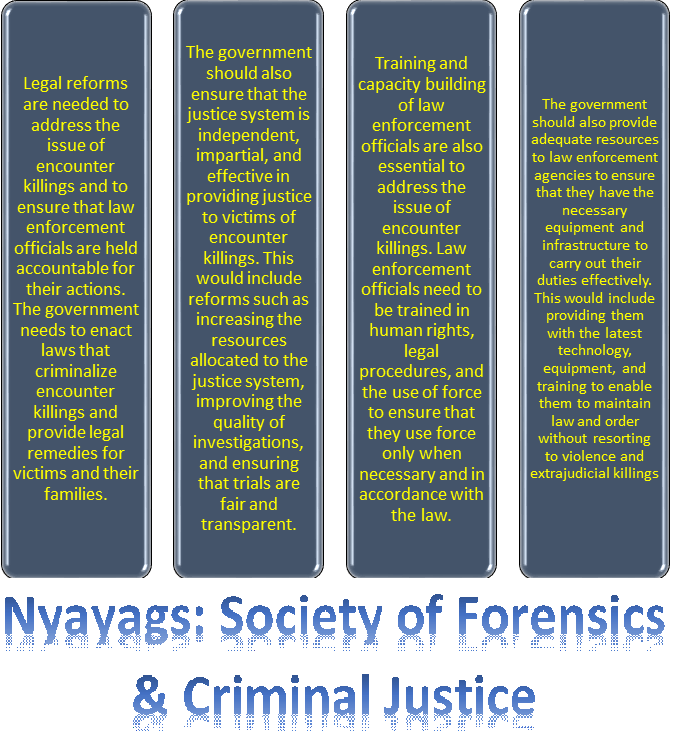Encounter killings, also known as extrajudicial killings, are a practice that involves the killing of suspects or criminals without a legal trial or due process. Despite being prevalent for centuries, encounter killings in modern times have raised concerns about human rights violations and the need for modifications. These factors are crucial when it comes to writing content, as perplexity and burstiness are essential. Humans tend to write with greater burstiness, with some longer or complex sentences alongside shorter ones. On the other hand, AI models are usually trained to be less bursty and less perplexed, which might result in less engaging content.
Where the police or law enforcement officials engage in shootouts with suspects or criminals without a legal trial or due process. The term “encounter” refers to a sudden and unexpected meeting between law enforcement officials and suspects that usually results in the use of force by the police to subdue or eliminate the suspects.
If we look back in history, encounter killings can be traced back to the early days of policing, when law enforcement officials had limited resources and faced significant challenges in maintaining law and order. In such situations, the use of force and violence was often seen as the only way to control criminals and maintain public safety. In the 19th and early 20th centuries, encounter killings were used extensively in countries such as the United States and Europe, where the police were given a free hand to use force against suspects without any legal consequences. Encounter killings are prevalent in many parts of the world, especially in developing countries where the police are often under-resourced and face significant challenges in maintaining law and order. According to Amnesty International, encounter killings are widespread in countries such as India, Pakistan, Bangladesh, and the Philippines, where the police are often accused of using excessive force, torture, and extrajudicial killings to subdue suspects and maintain law and order.
In India, encounter killings are prevalent in states such as Uttar Pradesh, Maharashtra, and Gujarat, where the police are often accused of staging fake encounters to eliminate suspects without any legal trial or due process. The government has faced significant criticism for its failure to address the issue, leading to calls for legal reforms and strict enforcement of human rights laws. Encounter killings have been a controversial practice, with many human rights activists and legal experts criticizing it for its violation of human rights and the justice system. As suspects or criminals are often killed without any legal trial or due process, it violates the fundamental right to life and liberty, as well as the right to a fair trial. This violation of human rights has led to calls for legal reforms to address the issue. Additionally, encounter killings are often associated with abuse of power and corruption. The Impacts and Implications of Encounter Killings. Encounter killings have a significant impact on the society and justice system.

To address the issues and controversies surrounding encounter killings, there is a need for legal reforms and strict enforcement of human rights laws. Governments and law enforcement agencies must be held accountable for any violations of human rights and abuse of power. This can involve improving their investigative and evidence-gathering skills and providing them with non-lethal weapons.
Accountability and Transparency:
There is a need for accountability and transparency in police operations, with clear guidelines and protocols in place for the use of force. This includes the use of body cameras and independent investigations into encounter killings to ensure that the police are held accountable for their actions.
Legal Reforms:
There are necessary to ensure that the justice system is fair and impartial, with a focus on protecting the rights of suspects and criminals. This includes reforms to criminal laws, procedures for the use of force, and the establishment of independent oversight bodies to monitor police operations.
Capacity Building:
To ensure that the police are well-equipped and trained to handle complex situations without resorting to violence and extrajudicial killings. This includes training on human rights, conflict resolution, and community policing, as well as the provision of adequate resources and equipment.
Community Engagement:
Engagement builds trust and confidence between the police and the general public. This includes the establishment of community policing programs, public outreach initiatives, and the involvement of civil society organizations and human rights groups in police reform efforts.
